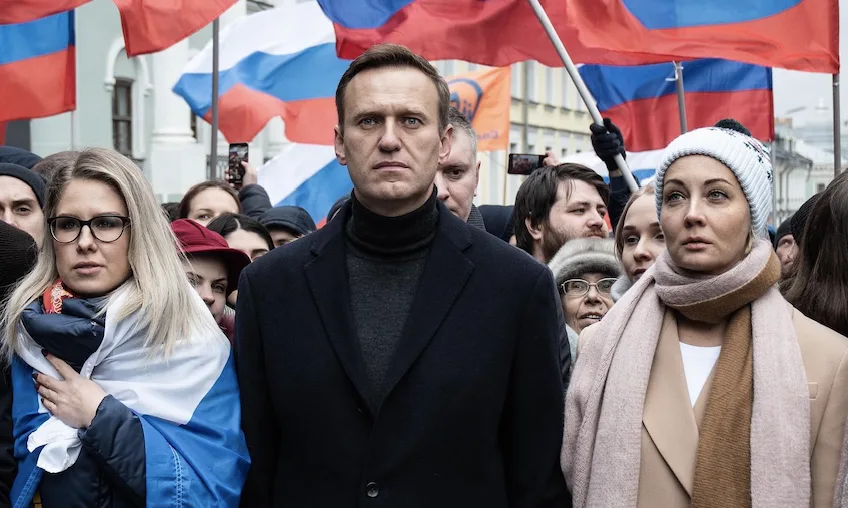From the correspondent in Strasbourg – A standing ovation as obvious as deserved. The European Parliament stands with Yulia Navalnaya, the wife of the Russian opposition leader who died in a Siberian prison last Feb. 16, and with all dissidents who do not bow to Vladimir Putin’s regime. But Yulia, who promised to continue Alexei’s mission, did not come to the European hemicycle for a warm hug. In her speech, she urged EU institutions to search member countries for “lawyers and financiers who help Putin and his friends hide money”.
Navalny’s wife announced that the funeral will be held tomorrow (Feb. 29). “I don’t know yet whether it will be peaceful or whether the police will arrest those who have come to say goodbye to Alexei,” she told the chamber. Navalny’s murder “proved once again to everyone that Putin is capable of anything and that you cannot negotiate with him,” Yulia insisted, in an allusion to those who “got used to war” in Ukraine and are beginning to ponder the option of a deal with the Kremlin.
In a parliament that has just entered the last hundred days before the European elections, Navalnaya conjured up the scenario of an election campaign in which one cannot meet voters, give interviews, or shoot commercials. “Welcome to Putin’s Russia,” she declared. Yet her husband “managed to become the country’s most famous politician and inspire millions with his ideas,” experimenting all the time, circumventing Moscow censorship and constantly innovating his strategy.
Likewise, after thirteen packages of sanctions that failed to sink the Russian giant, the EU should understand that “you cannot hit Putin with another resolution or another set of sanctions that are no different from the previous ones.” Because, on the borders of Europe, there is not a politician, but “a bloody mafioso, the head of a criminal organization.”

To fight against organized crime, the right methods must be applied: “Not diplomatic notes, but investigations into financial machinations. Not statements of concern, but search for the mafia associates in your countries, the lawyers and discreet financiers who help Putin and his friends hide money.” And in this hunt, the EU can count on “reliable allies,” the tens of millions of Russians who oppose Putin and the war.
Hailed by President Roberta Metsola, who reiterated her condemnation of the murder “in the strongest possible terms” and her call for “an international and independent investigation,” Yulia Navalnaya concluded her speech amid roaring applause from the packed courtroom—except for a few empty seats on the far right, among the ranks of Identity and Democracy, a group to which the Lega belongs, and on the far left.
The leaders of all political groups then took turns to speak. All united against the criminal Putin, along with a promise not to abandon the Russian people and to find new tools to counter the Moscow regime. Speaking for the European Conservatives and Reformists (ECR) was group leader Nicola Procaccini (FdI), who of Navalny “always appreciated the courage and imagination, the serenity and faith with which he carried out his ideas. Even when few could understand its meaning, its value.” Procaccini described Navalny as a “Christian, born into a military family,” who has “always fought for his homeland without weapons or fear.” Comparing him to one of the symbolic figures of the European right, Jan Palach, who “faced death alone by burning himself in front of Soviet tanks invading Prague.”
English version by the Translation Service of Withub










